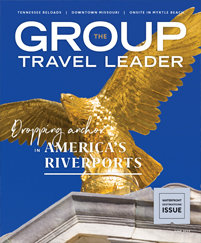
Three days in Rhode Island present a wealth of possibilities for travelers. A trip through this state helped me reconnect with a treasured part of my heritage.
I had always known that my grandfather was born in Rhode Island and that he spent most of his early life there before moving, as an adult, to Kentucky. He never truly became a Southerner, though, and during my visit to Rhode Island, I found a place where he would have fit in perfectly.
I also discovered the state’s traits — a heritage of religious freedom, a pride in historic preservation and a love for food and art — that helped make Grandpa who he was.
Freedom and faith
“This is a place where things changed dramatically for the entire world.”
At Roger Williams National Memorial in downtown Providence, ranger John McNiff told me about the influence of Roger Williams, who, after being expelled from Massachusetts for espousing views about separating church and state, went on to found Providence and Rhode Island.
“One of his basic philosophies was that the people were responsible for government,” McNiff said. “This sense of independence runs throughout Rhode Island.”
The independent spirit made Rhode Island a forerunner in religious freedoms, allowing churches of any creed to thrive in the small state. The church that Williams established in Providence is still active today, calling itself the First Baptist Church in America.
Groups can tour the church’s 1770 building, the third structure to stand on the site, and see historic items such as 1832 pews, an 1834 organ and Waterford crystal chandeliers that date back to 1792.
“This is the largest wooden building surviving from Colonial America,” said church historian Stan Lemons. “It’s a testimony to the ambitions of the town fathers and the Baptists at that time. It was meant to make an impression.”
In Newport, the Touro Synagogue makes an impression of its own. Judaism was frowned upon throughout much of Colonial New England, but Newport welcomed Jews. In 1763, the city’s Jewish leaders founded Touro, the country’s first synagogue.
An active congregation still uses the building, but when services are not in session, groups can tour the beautiful synagogue. During a visit, they will discover Georgian and Palladian architecture, as well as a “President’s Pew” that has been used by George Washington, Dwight Eisenhower and John F. Kennedy.
My favorite feature of the synagogue was the 500-year-old Torah scroll on display at the front. A visitors center on the property has exhibits with more information about the Touro congregation’s history and Rhode Island’s tradition of religious freedom.












